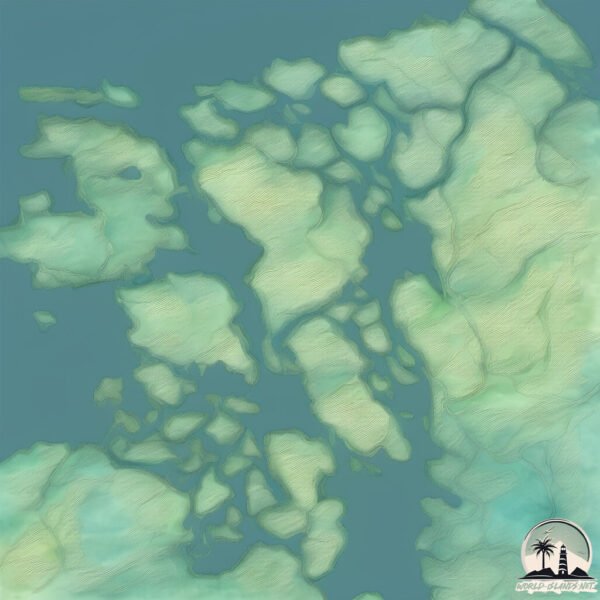Hagoyna

Welcome to Hagoyna, a Temperate island in the Norwegian Sea, part of the majestic Arctic Ocean. This guide offers a comprehensive overview of what makes Hagoyna unique – from its geography and climate to its population, infrastructure, and beyond. Dive into the details:
- Geography and Size: Explore the island’s size and location.
- Climate and Weather: Weather patterns and temperature.
- Topography and Nature: Uncover the natural wonders of the island.
- Infrastructure and Travelling: Insights on reaching, staying, and making the most of your visit.
- News and Headlines: Latest News.
Geography and size of Hagoyna
Size: 3.248 km²
Coastline: 15.9 km
Ocean: Arctic Ocean
Sea: Norwegian Sea
Continent: Europe
Hagoyna is a Small Island spanning 3.2 km² with a coastline of 15.9 km.
Archipel: –
Tectonic Plate: Eurasia – One of the world’s largest tectonic plates, the Eurasian Plate covers a significant portion of Europe and Asia. It’s characterized by diverse geological features, including the Ural Mountains, the European Plain, and the Himalayas formed from its collision with the Indian Plate.
The geographic heart of the island is pinpointed at these coordinates:
Latitude: 61.12499328 / Longitude: 4.81103333
Climate and weather of Hagoyna
Climate Zone: Temperate
Climate Details: Temperate Oceanic Climate
Temperature: Warm Summer
Climate Characteristics: Known for its moderate year-round temperatures with ample rainfall and no dry season. Warm summers are characteristic.
Topography and nature of Hagoyna
Timezone: UTC+01:00
Timezone places: Europe/Paris
Max. Elevation: 121 m
Mean Elevation: 82 m
Vegetation: Open Woodland
Tree Coverage: 100%
The mean elevation is 82 m. The highest elevation on the island reaches approximately 121 meters above sea level. The island is characterized by Plains: Flat, low-lying lands characterized by a maximum elevation of up to 200 meters. On islands, plains are typically coastal lowlands or central flat areas.
Dominating Vegetation: Open Woodland
Characterized by sparsely distributed trees with open canopy allowing sunlight to penetrate, supporting grasses and shrubs underneath. Often found in drier or transitional environments. Hagoyna has a tree cover of 100 %.
Vegetation: 5 vegetation zones – Highly Diverse Island
With five different vegetation zones, these islands offer a rich tapestry of ecosystems. The variety could include dense forests, open meadows, wetlands, coastal zones, and more. This level of diversity supports an intricate web of life, with each zone playing a vital role in the overall ecological health and balance of the island.
Infrastructure and Travelling to Hagoyna
Does the island have a public airport? no.
There is no public and scheduled airport on Hagoyna. The nearest airport is Florø Airport, located 55 km away.
Does the island have a major port? no.
There are no major ports on Hagoyna. The closest major port is MONGSTAD, approximately 39 km away.
The mean population of Hagoyna is 4 per km². Hagoyna is Gently Populated. The island belongs to Norway.
Continuing your journey, Steinsundoyna is the next notable island, situated merely km away.
Norway is classified as Developed region: nonG7: Developed economies outside of the Group of Seven, characterized by high income and advanced economic structures. The level of income is High income: OECD.
News – Latest Updates and Headlines from Hagoyna
Stay informed with the most recent news and important headlines from Hagoyna. Here’s a roundup of the latest developments.
Please note: The data used here has been primarily extracted from satellite readings. Deviations from exact values may occur, particularly regarding the height of elevations and population density. Land area and coastline measurements refer to average values at mean high tide.
